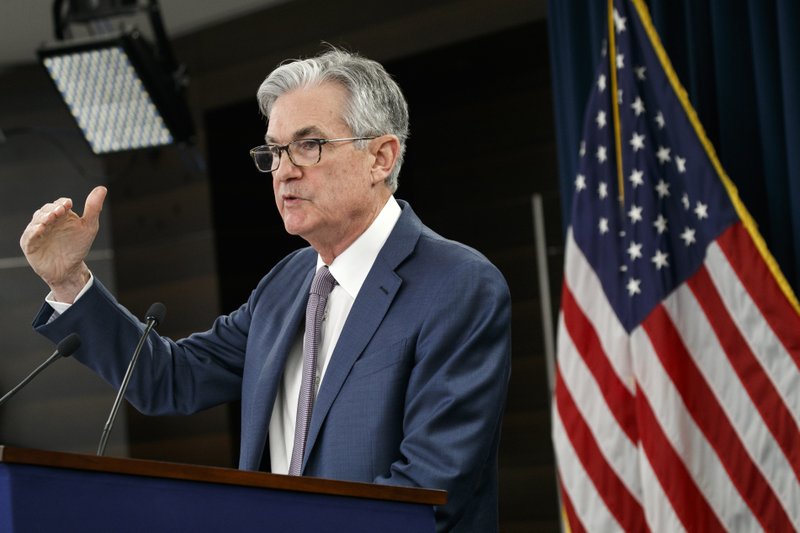The Federal Reserve announced a significant change Thursday in how it manages interest rates by saying it plans to keep rates near zero even after inflation has exceeded its 2% target level.
The change means the Fed is prepared to tolerate a higher level of inflation than it generally has in the past. And it means that borrowing rates for households and businesses — for everything from auto loans and home mortgages to corporate expansion — will likely remain ultra-low for years to come.
The new goal states that “following periods when inflation has been running persistently below 2%, appropriate monetary policy will likely aim to achieve inflation moderately above 2% for some time.”
Behind the Fed’s new thinking is an ailing economy in the grip of a viral pandemic and a stubbornly low inflation rate that has long defied the Fed’s efforts to raise it. The policy change underscores the Fed’s belief that an exceedingly low jobless rate is critically important for the economy and for individual Americans and that it should focus its efforts on achieving it.
In a speech detailing the changes, Chairman Jerome Powell made clear that the policy change reflects the reality that high inflation — once the biggest threat to the economy — no longer appears to pose a serious danger, even when unemployment is low and the economy is growing strongly. Rather, Powell said, the economy has changed in a way that allows the Fed to keep rates much lower than it otherwise would without igniting price pressures.
“The economy is always evolving,” Powell said. “Our revised statement reflects our appreciation for the benefits of a strong labor market, particularly for many in low- and moderate-income communities and that a robust job market can be sustained without causing an unwelcome increase in inflation.”
Powell suggested that the Fed’s decision before the pandemic hit to keep rates low had helped to finally improve the fortunes of low-income workers, who had previously shared in few of the benefits of a record-long economic expansion.
“The robust job market,” he said, “was delivering life-changing gains for many individuals, families and communities, particularly at the lower end of the income spectrum.”
The chairman’s comments came at the Fed’s annual gathering of global central bankers and top economists, normally held in Jackson Hole, Wyoming, against a backdrop of the towering Grand Teton Mountains but this time conducted virtually because of the pandemic.
The Fed’s goal in revamping its policy stance on inflation is to drive home to borrowers and investors that its benchmark rate, which influences many consumer and business loans, will likely stay ultra-low for years to come. What’s new is the message that the Fed is prepared to accept a level of inflation that in the past it would not have tolerated while keeping rates near record lows.
(AP)











